Το Εθνικό και Καποδιστριακό Πανεπιστήμιο Αθηνών διοργανώνει υπό την αιγίδα του το 37ο Διεθνές Συνέδριο Σεισμολογίας “The 37th General Assembly of the European Seismological Commission (ESC)” εξ αποστάσεως κατά το διάστημα 19 – 24 Σεπτεμβρίου 2021.
Πρόκειται για το μεγαλύτερο και δημοφιλέστερο Σεισμολογικό Συνέδριο στην Ευρώπη, το οποίο αποτελεί τόπο συνάντησης για ακαδημαϊκούς και ερευνητές που διακρίνονται στον τομέα της σεισμολογίας και των συναφών επιστημονικών πεδίων. Εκτός από την παρουσίαση πρόσφατων αποτελεσμάτων και μεθοδολογιών σε θέματα αιχμής της επιστήμης της σεισμολογίας και της δομής του εσωτερικού της γης, θα καλυφθούν επιπλέον εφαρμοσμένες και κοινωνικές πτυχές της σεισμολογίας, όπως ο σεισμικός κίνδυνος, η σεισμική μηχανική, η εκπαίδευση και η πρόληψη των κινδύνων. Το Πανευρωπαϊκό Συνέδριο Σεισμολογίας του 2021 θα δώσει έμφαση σε σεισμολογικά θέματα, όπως η σεισμοτεκτονική, η σεισμική ανισοτροπία, η ενόργανη και η ιστορική σεισμικότητα, ιδίως στη σεισμογενή περιοχή της νότιας Μεσογείου. Έμφαση δίνεται από τους Συνέδρους στον Ελλαδικό χώρο που χαρακτηρίζεται από σύνθετο γεωδυναμικό καθεστώς και υψηλή σεισμικότητα.
Στο 37ο Διεθνές Συνέδριο Σεισμολογίας συμμετέχει επίσης μεγάλος αριθμός νέων ερευνητών, καθώς και αναγνωρισμένων διεθνώς επιστημόνων. Συγκεκριμένα, αναμένεται να το παρακολουθήσουν τουλάχιστον 400 επιστήμονες. Θα διοργανωθούν 38 συνεδρίες, στις οποίες έχουν υποβληθεί περισσότερες από 600 περιλήψεις (προφορικές ή σε μορφή πόστερ). Επιπλέον, θα συμμετέχει και η Αμερικανική Σεισμολογική Εταιρεία (SSA). Επίσης, θα πραγματοποιηθούν και πέντε κεντρικές ομιλίες από επιστήμονες διεθνούς φήμης.
Στα πλαίσια του Συνεδρίου, διοργανώνεται και Σχολείο για νέους Επιστήμονες, το “Young Seismologist Training Course” (YSTC) το οποίο διεξάγεται μία εβδομάδα πριν από το Συνέδριο. Το Σχολείο απευθύνεται κυρίως σε μεταπτυχιακούς φοιτητές και υποψήφιους διδάκτορες και έχει τίτλο “The Peter Bormann Young Seismologist Training Course (YSTC) of 2021: Seismology for Science and Society”. Το YSTC καλύπτει ένα εύρος σεισμολογικών θεμάτων, όπως η σεισμικότητα του Ελλαδικού χώρου, τα ρήγματα και ο σεισμικός κίνδυνος, οι πρόσφατοι σεισμοί της Κροατίας, η μακροσεισμική, η επαγόμενη σεισμικότητα, η υπολογιστική σεισμολογία, εφαρμογές μηχανικής μάθησης στη σεισμολογία, κατάλογοι σεισμών και πρόσβαση σε διεθνή σεισμολογικά δεδομένα.
- Χαιρετισμός Πρύτανη ΕΚΠΑ Θ. Δημόπουλου:
Dear Participants,
It is my honour to welcome you to the 37th General Assembly of the European Seismological Commission organized by the National and Kapodistrian University of Athens. It is with virtual events this year that we all continue to feel the sense of community, celebrate achievements, exchange scientific opinions and motivate young scientists to take a leading role in the science landscape of tomorrow.
The world has dramatically changed this last year. The global pandemic created much uncertainty and loss about our lives and livelihoods. As we are now entering Fall 2021, we are looking the future with the optimism that we will soon be able to engage increasingly more with colleagues and fellow students, family and friends. As the famous astronomer and public intellectual Carl Sagan said “Science is A Light in the Dark”. We have lived through unfortunate times but Science illuminates our minds with evidence-based reasoning. These last months COVID vaccines offer a way out of the dark. This year we have all witnessed Science as a collective global experience joined by academics, by researchers serving different disciplines, from medicine to chemistry and computer science, but also by researchers and practitioners of our daily lives. The message from our University, to all and everyone one of you individually, is how important your public service as scientists is towards building a resilient society.
But it is not only the COVID pandemic that captured our attention and sentiment recently. The last few months have been, and still are, especially difficult for the Mediterranean. Wildfires swept evergreen forests in Italy, Greece and Turkey while north and central Europe faced floods of unseen proportions. Climate change is a reality posing new challenges that require multi-disciplinary efforts and global collaboration. They also require a bond of trust between scientists, policy makers, state officials and the public. This year we have forged these relationships and we will continue in the future to intensify our scientific communication to the public.
If anything, the programme of this conference illustrates that seismologists are actively contributing towards natural disaster risk reduction and meet societal needs. I see that Seismology is progressing rapidly towards developing modern technological tools, such as Artificial Intelligence, to solve longstanding issues. Perhaps these new technologies will offer insights to how earthquakes happen and hint how we can best mitigate their effects.
Through-out the Greek mythology, our history and our everyday life earthquakes are everpresent and they will continue. Earthquakes caused damages in buildings and heritage in modern Athens in recent past but also protected the 4BC Athens from military invasions. Studying this rich past using modern scientific approaches, seismologists across the world share their understanding of the complex Earth with all of us, but not before scientific exchanges and results are shared and debated in open fora.
It is my honor to welcome all of you alike; senior researchers, well-known academics and especially our young researchers from all over Europe and the world to an engaging full-week of discussions and exchanges in this virtual event with the hope that we will welcome you back in Greece in person for sabbaticals in our University(ies) and family vacations in the next summers.
I wish you wholeheartedly a successful and exciting meeting!
- Εναρκτήρια Ομιλία του Καθηγητή Σεισμολογίας – Τεχνικής Σεισμολογίας – Εφαρμοσμένης Γεωφυσικής και Αντιπροέδρου της Ευρωπαϊκής Σεισμιλογικής Επιτροπής Ν. Βούλγαρη:
Dear Participants, It is my honour to welcome you all to the 37th General Assembly of the European Seismological Commission organized by the National and Kapodistrian University of Athens. Our meeting is one of the many you attend virtually this year due to the constraints posed by the pandemic, but this does not take anything away from the pleasure of seeing each and every one of you once again, discussing, exchanging opinions and presenting our work in this forum. We have already started our scientific program last week with the Young Scientists Training Course and those participants already have enthusiastic comments and testimonies about their experience. In the course of the week, we will have 5 plenary talks and more than 570 oral and poster presentations. We also join efforts with the Seismological Society of America towards bringing to the broader audience the most recent advances on hot topics of research such as Artificial Intelligence applications to solve long-standing issues of seismological practice. We have surely come a long way since the early 90s when the General Assembly of the ESC was held in Athens organized once again by the National and Kapodistrian University of Athens. Back then our scientific focus was mostly on the much-needed densification of regional seismic networks to improve our monitoring capability. Now, a national seismic network that is developed and maintained by national and European funds provides continuous waveforms in real-time making possible our work every day. The seismological community today builds on the principles that supported these advancements: public service of scientists, international collaboration and open-access data. We also acknowledge the contributions of young and early-career scientists and non-scientific personnel towards the realization of our collective vision. Since the pandemic begun we have witnessed scientists across the spectrum of disciplines explaining the complex realities behind transmission, investigating the triggers behind COVID19, suggesting mitigation and protective measures. Scientists where frequently asked the question: What comes next? Their answers were based at the necessary qualitative interpretation of the evolving situation but also on predictive models forecasting our possible futures. The public demand for robust scientific information in times of crises is now larger than ever before in modern society. In Seismology, we have to follow carefully the demand of our times and stir our efforts towards supporting safe and secure societies in the face of natural disasters. This past March, a strong eartqhuake causing damages to rural areas in Central Greece while in the summer wildfires brought widespread catastrophe to urban areas and evergreen forests. How recovery, and most importantly rebuilding lifelines and people’s homes, after earthquakes will be inclusive of our collective promise for net-zero emissions fighting climate change? The south-eastern Mediterranean will be among the most influenced by climate change geographic locations of the planet but our geodynamic position is not less critical. Greece corresponds to the active subducting margin of the Eurasian-Nubian tectonic plates where the convergence rate reaches 30-40 mm/yr. It is remarkably rapid for such an aged subduction process. Historic and modern, shallow and deep-focused earthquakes are dominating the turbulent earthquake archive with descriptions from classical authors, such as Herodotos, or in our times social media ones, such as Instagram posts. As scientists, we work with and utilize every piece of information with emerging approaches to retrieve hidden information that will progress our scientific effort. A magnitude six occurs with 5 years average frequency and there is no part of the country that is earthquake-proof. Greece remains, together with Italy, the most seismically active part of Europe. Anyone teaching a seismology class for more than 30 years has witnessed observational, computational and monitoring advances that never thought possible at the time. In the early 90s, there was a silent promise that never materialised that we are close to understanding the complexity of the earthquake system. Since then we have certainly made strides; going from analogue to digital instruments, from determining locations and event characteristics automatically within seconds, analysing mega-events that challenge what we thought physically possible, discovering lost fragments of continents under our feet or simply, addressing more consistently one impactful earthquake in our country. Today, there are still unknown natural processes that deem our interpretation of earthquake occurrences incomplete, or simply make our problem of large-earthquake nucleation under-determined. This is clearly our next frontier, and one that we have to meet and pass in the foreseeable future. Are we constrained in our interpretations from the inherited difficulty to record earthquakes that happen deep in the crust, or our approaches are not fit to uncover the unknown, yet existing, mechanisms of What comes next? In the course of this week we will discuss about new results promising that the scientific advances of the future will be no less exciting. Recent earthquakes in Croatia puts us all on notice for improving seismic monitoring in low to moderate seismicity environments. Artificial Intelligence offers new computational tools for accomplishing pain stacking processing work of years within few days. Clarifying the relationship between short-and long-term hazard will continue to have a key role in our discussions about how seismology can support evidence-based decision making for policy makers, state officials and the public. We will also take a closer look to regional geodynamics and complex earthquake systems in Greece: what have we learnt in recent years and what open questions remain. We hope the next ESC General Assembly in Bucharest will be a celebration of coming together in person, meeting collaborators and friends once again and extend our professional networks. However, it is the online General Assembly of this week that will attest that we are stronger together as a community no matter the conditions of our gathering. I am certain that this will be an exciting and successful meeting for us all!
Επίσημος Ιστοχώρος: https://www.escgreece2021.eu/


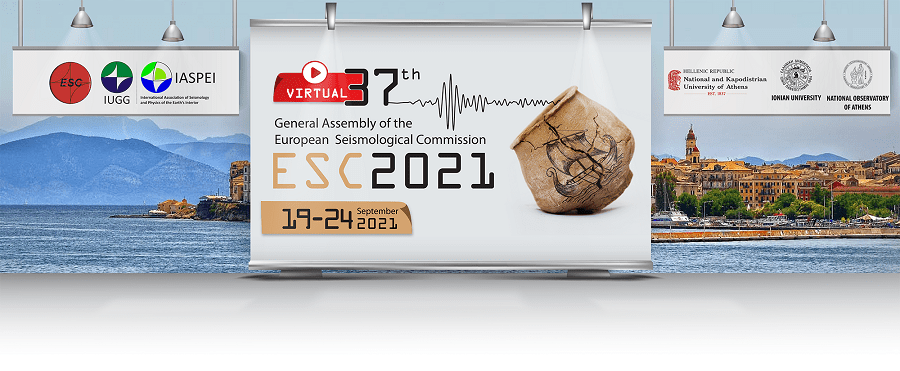
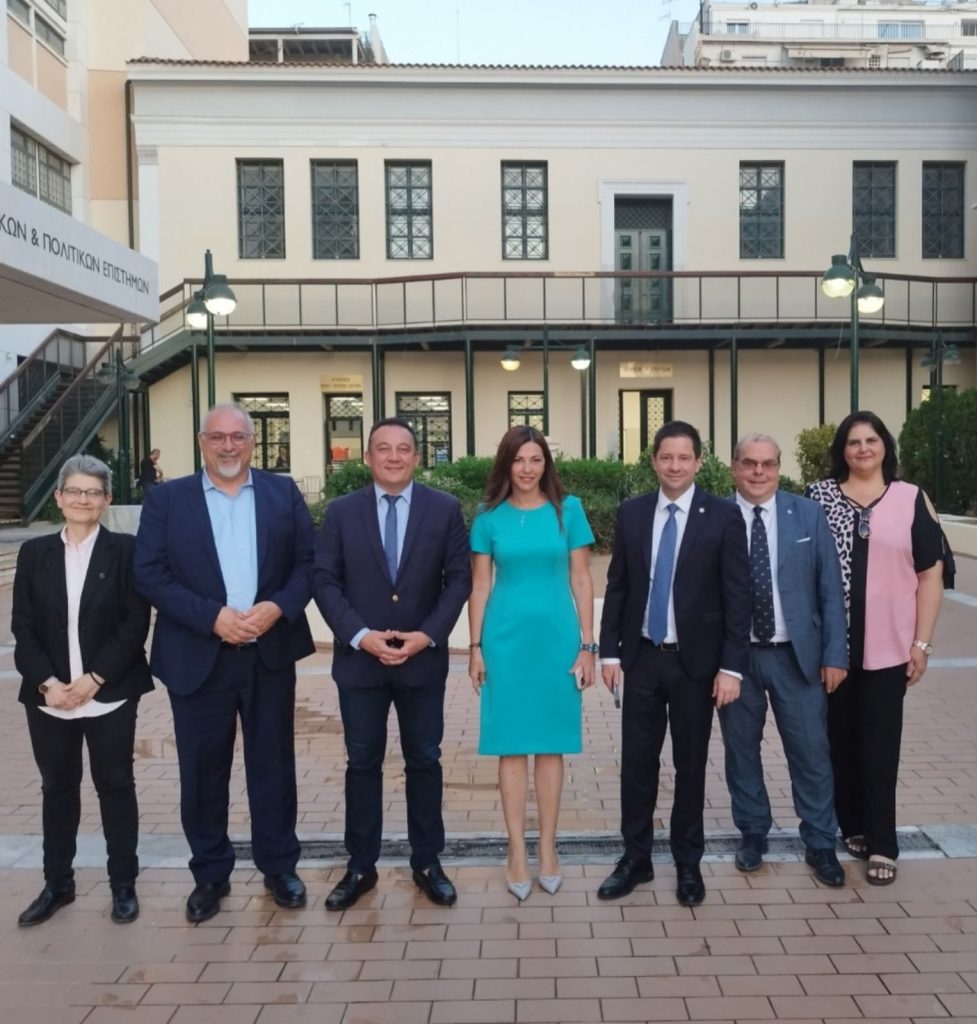
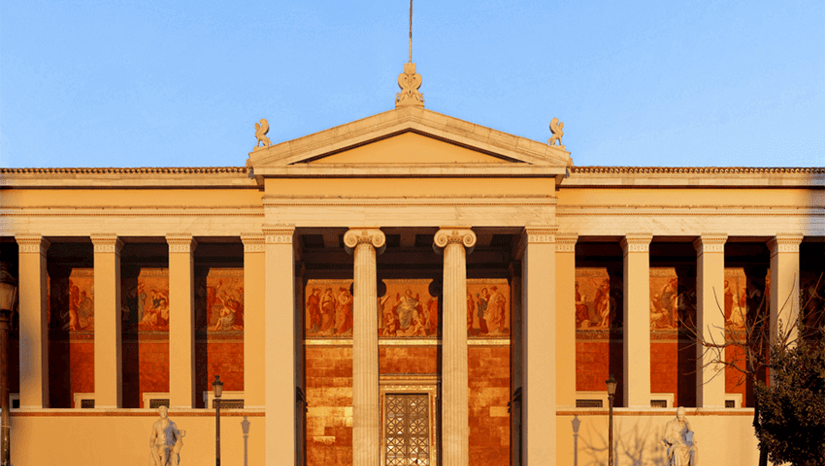
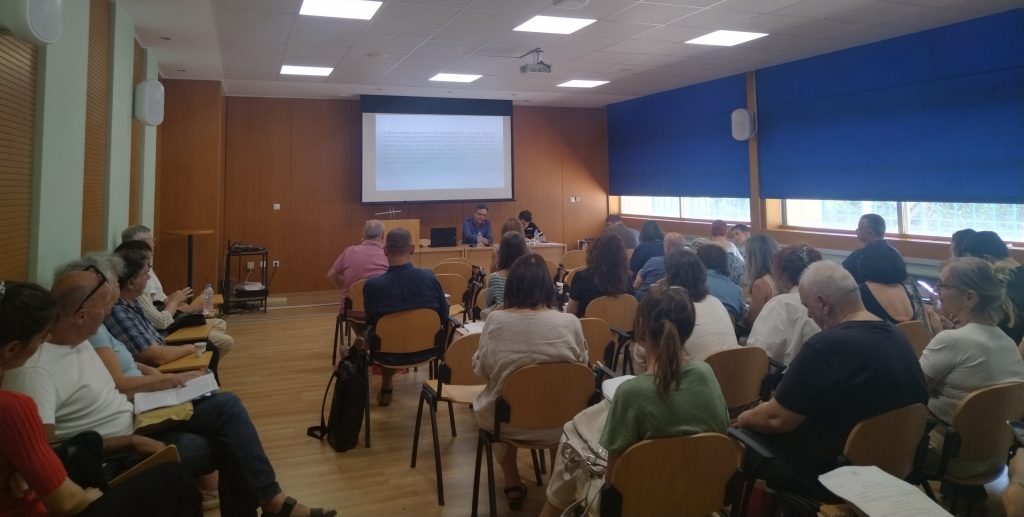
![Διημερίδα “Ιουλιανά 1965: Πολιτική κρίση και Νεανική διαμαρτυρία, Ιστορία, Μνήμη, Πηγές” [8-9 Ιουλίου]](https://hub.uoa.gr/wp-content/uploads/2025/07/Capture1.jpg)
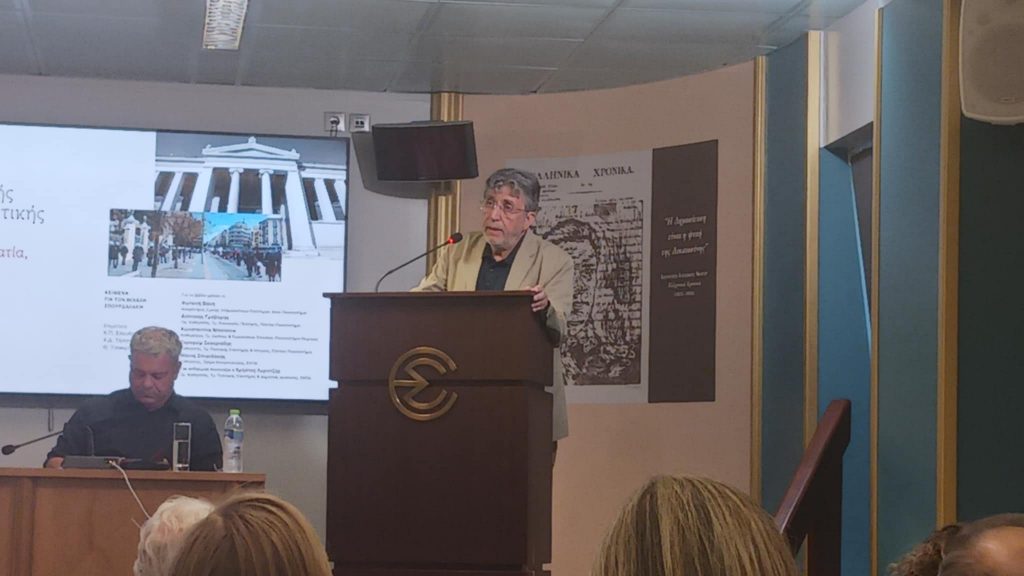
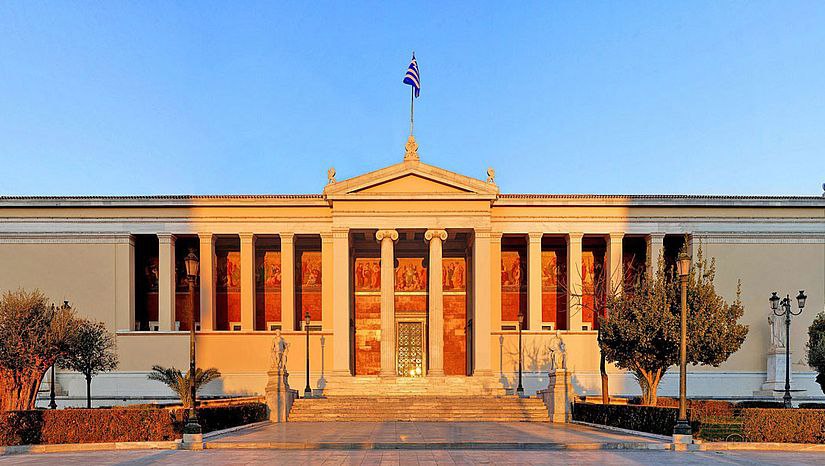
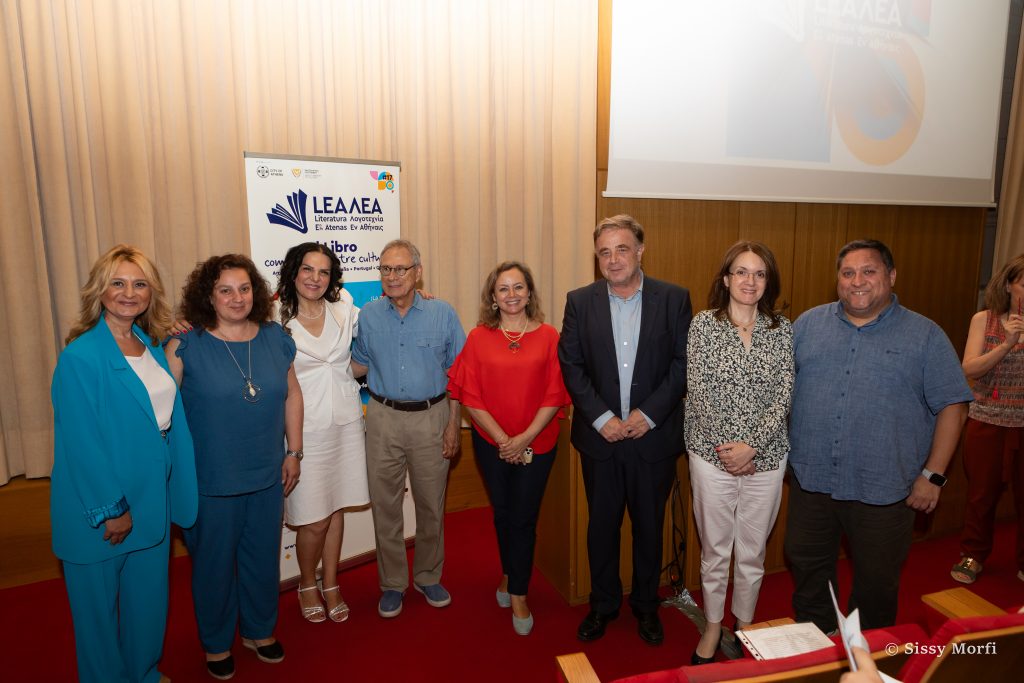
![Διαδικτυακή ημερίδα / webinar με θέμα «Μύθοι, θεοί και ήρωες στην Αρχαία Ελλάδα» [30/06/2025]](https://hub.uoa.gr/wp-content/uploads/2005/06/Copy-of-Your-paragraph-textfffffff-1024x576.jpg)
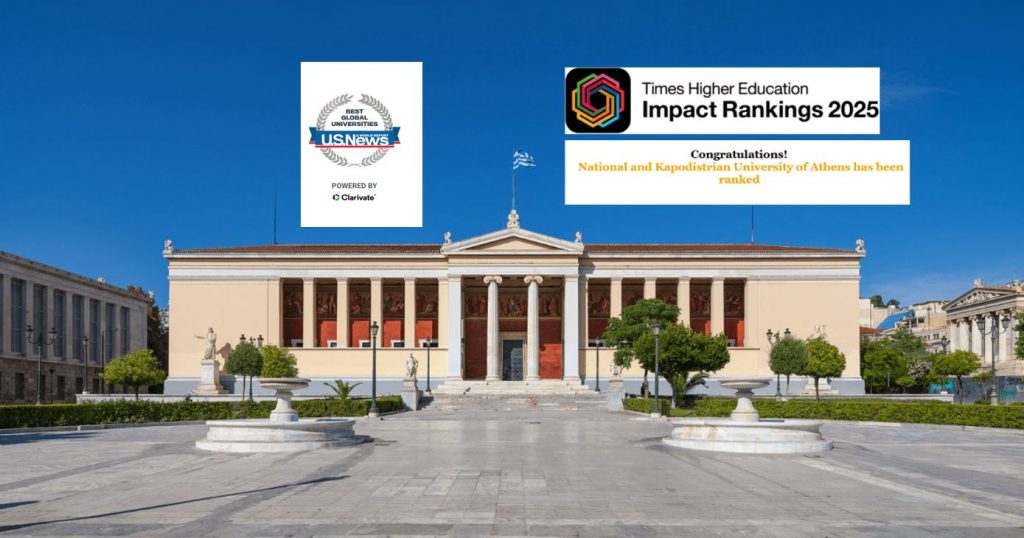
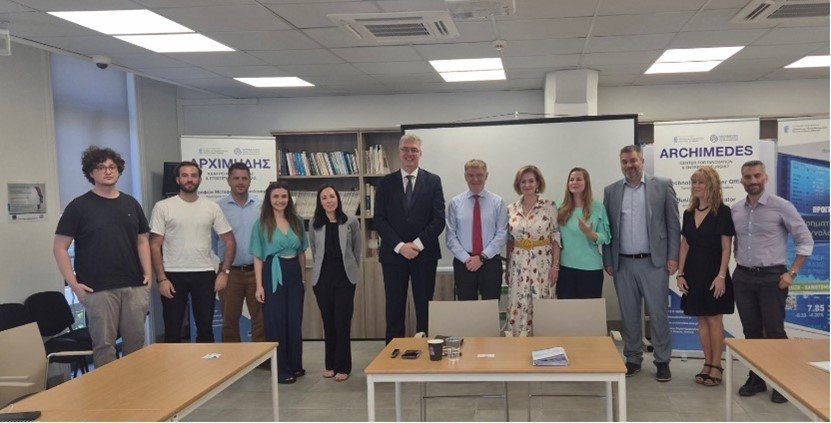


![Το 63ο διεθνές συνέδριο χορού στην Αθήνα [2-6 Ιουλίου]](https://hub.uoa.gr/wp-content/uploads/2025/07/ΟΡΧΗΣΗ-ΓΙΑ-ΤΗΝ-ΕΙΡΗΝΗ-1024x576.jpg)

